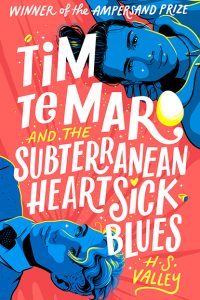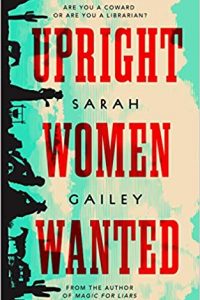Alexandra Pierce Reviews The Best of World SF Volume 3 by Lavie Tidhar, ed.
 The Best of World SF Volume 3, Lavie Tidhar ed, (Head of Zeus 978-1-80454-803-5, £25.00, 624pp, hc) October 2023. Cover by Ben Prior.
The Best of World SF Volume 3, Lavie Tidhar ed, (Head of Zeus 978-1-80454-803-5, £25.00, 624pp, hc) October 2023. Cover by Ben Prior.
Lavie Tidhar continues to be prolific, both as an author and editor. The second in the World SF series came out in the same year as Maror and Neom, while 2023 saw the publication of novels Adama and The Circumference of the World as well as this anthology.
The Best of World SF Volume 3 brings together an eclectic range of stories originally published between 1997 and 2021, some appearing in English for the first time here. As the date range indicates, this series is becoming an annual celebration of some of the best SF from around the world that draws from many years, rather than being the best work published in just one year. Authors come from a diverse range of cultures and nationalities: by my count people from 21 countries, from Finland to South Africa, Ghana to Malaysia, Russia to Mexico. This anthology doesn’t aim for thematic coherence, but instead has been collated from the position of ‘‘these are writers you don’t yet know.’’ The collected stories therefore examine a variety of themes, and use a range of science fictional concepts. Alienation is a significant throughline: people are alienated from family, society, and the planet, and unsurprisingly climate change is prominent. On the conceptual side, there are – amongst others – robots, aliens, space travel, and dinosaurs.
There are 28 stories in this anthology, so there’s a lot to love. Let me touch on a few.
The anthology begins with alienation, in the form of Diana Rahim’s ‘‘A Minor Kalahari’’. Here, a watermelon – in all its resplendent color and juiciness – suddenly appears in a town that has gone grey: both literally, with color leached from the environment, and figuratively, with people lacking connection to one another. The watermelon confronts the grey, and provides a path out of it, in this lovely story. The world of Daniela Tomova’s ‘‘Behind Her, Trailing like Butterfly Wings’’ is completely different, but her story also examines that lack of connection. In this instance, people have responded to the unpredictable destruction of parts of the world in two ways: either remaining in one place or following the Wandering Woman in search of connection. Tomova’s story confronts the ways we categorize people, and how we seek meaning; the conclusion packs a real punch. And in Zahra Mukhi’s ‘‘I Call Upon the Night as Witness,’’ people are literally alienated from their land as Lines appear, sometimes in their house or through the sea, forcing people to move – and often making them stateless. It’s a powerful story for its own sake; read as a parable for displaced persons, it’s deeply impactful.
Robots and aliens feature in some of my favorite stories. Fadzlishah Johanabas and Cheryl S. Ntumy both examine how artificial intelligence might connect to spirituality: in ‘‘Act of Faith’’, a robot becomes a Muslim, while in ‘‘Godmother’’ the AI herself becomes a spiritual leader in a society where lack of trust is the hallmark of human interaction. Another robot story, from M.H. Ayinde, includes aliens as well, although they exist only to have destroyed the world and then left. The narrative of ‘‘The Walls of Benin City’’ revolves around the interactions between an automaton and a human survivor, and asks questions about worth, self, and identity. Of the alien stories, the one which intrigued me most is Choyeop Kim’s ‘‘Symbiosis Theory’’, which begins as the story of an artist and becomes a provocative narrative about what actually makes us human.
Finally, there are some stories that refuse categorisation. Favorites include Luo Longxiang’s ‘‘The Foodie Federation’s Dinosaur Farm,’’ which is set in a food-obsessed galactic empire where scientists have recreated dinosaurs for food, then discovered that some of them are intelligent. It’s hugely enjoyable. And then there’s Thomas Olde Heuvelt’s ‘‘The Day the World Turned Upside Down’’ – which won the Hugo in 2015 for Best Novelette – which starts with Earth’s gravity having flipped: anything not tied down, or under a roof, falls off the planet; everything else slams into a ceiling. Within this new and bizarre context, the narrator is also dealing with a breakup, which takes up much more of his attention than the global situation.
As with the second volume in this series, this is exactly what a book of science fiction should be: confronting and examining a range of issues, in varied times and places, through a variety of technological and social lenses. I look forward to the day when anthologies will include writers from places such as Greece, Nigeria, Bulgaria, and the Philippines as a matter of course, alongside American, English, and Australian authors. Until then, I can only hope Tidhar finds the time to keep creating these anthologies, to raise the profile of individual authors and the very existence of ‘‘world SF.’’
Alexandra Pierce reads, writes, podcasts, cooks and knits; she’s Australian and a feminist. She was a host of the Hugo Award winning podcast Galactic Suburbia for a decade; her new podcast is all about indie bookshops and is called Paper Defiance. Alex has edited two award-winning non-fiction anthologies, Letters to Tiptree and Luminscent Threads: Connections to Octavia E Butler. She reviews a wide range of books at www.randomalex.net.
This review and more like it in the November 2023 issue of Locus.
 While you are here, please take a moment to support Locus with a one-time or recurring donation. We rely on reader donations to keep the magazine and site going, and would like to keep the site paywall free, but WE NEED YOUR FINANCIAL SUPPORT to continue quality coverage of the science fiction and fantasy field.
While you are here, please take a moment to support Locus with a one-time or recurring donation. We rely on reader donations to keep the magazine and site going, and would like to keep the site paywall free, but WE NEED YOUR FINANCIAL SUPPORT to continue quality coverage of the science fiction and fantasy field.
©Locus Magazine. Copyrighted material may not be republished without permission of LSFF.








“I look forward to the day when anthologies will include writers from places such as Greece, Nigeria, Bulgaria, and the Philippines as a matter of course, alongside American, English, and Australian authors.”
Thanks you for the kind words!